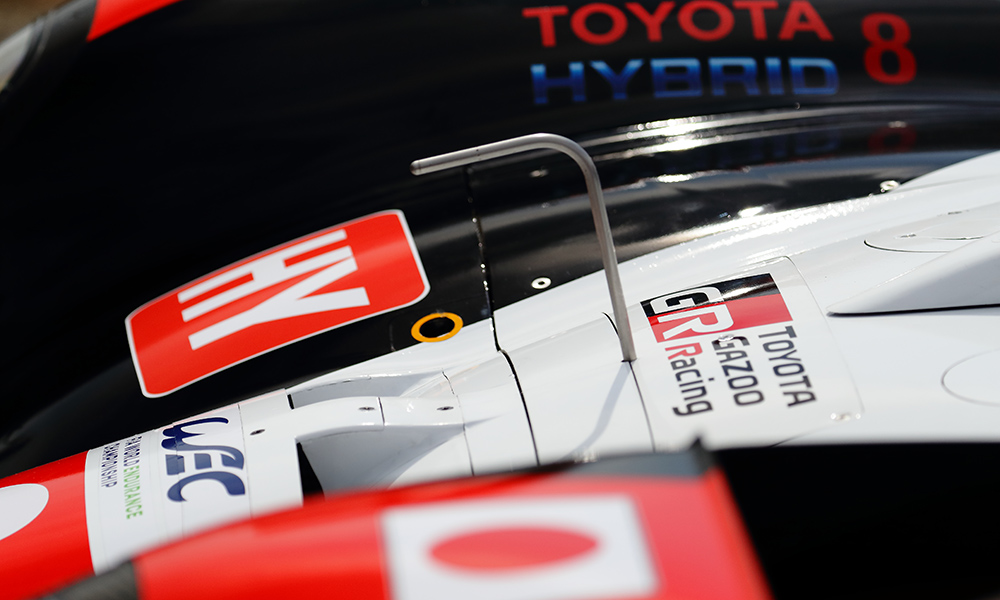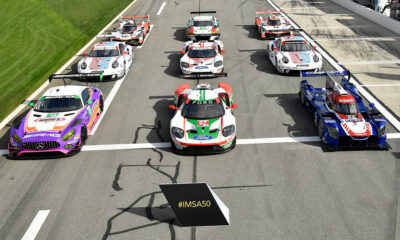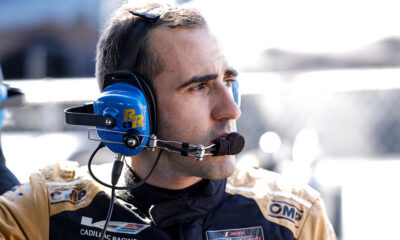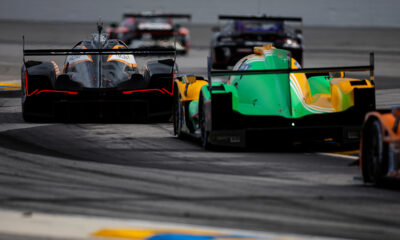
Photo: James Moy/Toyota
Toyota Gazoo Racing team director Rob Leupen says he’s hopeful of the Le Mans Hypercar platform being eligible to compete in the IMSA WeatherTech SportsCar Championship, which could allow Toyota to be on the grid in key endurance races such as the Rolex 24 at Daytona.
The Japanese manufacturer, which is still moving ahead with the build of its GR Super Sport-based LMH prototype despite various parts shortages related to the coronavirus pandemic, has not ruled out participation in selected IMSA races should its car be eligible.
ACO and IMSA convergence plans have so far called for LMH and the jointly-developed LMDh platforms to race together in the FIA World Endurance Championship beginning with the 2021-22 season, although IMSA has not yet declared if LMH would be eligible in the WeatherTech Championship once LMDh takes over from DPi in 2022.
Speaking with Sportscar365, Leupen expressed interest in taking the factory outfit to Daytona and potentially Motul Petit Le Mans but stressed that its main program would remain in the WEC.
“I would love to go in January to the Daytona 24 in the near future,” Leupen said. “I don’t only want to see IMSA teams joining Le Mans – I would also very much like to see WEC joining at Daytona and Petit Le Mans.
“If that is going to happen, I think it should be a very open [regulation] going in both directions.”
Leupen believes a common set of regulations across both championships would lead to a reciprocal effect from teams and manufacturers, and not necessarily just in the key endurance races.
“The national championship in the USA might get some more spicy competitors and some of their competitors might decide to do more than Le Mans when they come over here,” he said.
“Let’s see what’s developing on that side. We’ll see if it’s possible to balance the cars because the performance difference between the two race series is huge.”
Meetings have been ongoing to finalize the LMDh regulations, which were due to be presented at the since-canceled ‘Super Sebring’ event last week.
While it’s understood considerable progress has been made, the ACO and IMSA have yet to fully come to terms on powertrain specifics for LMDh that would allow a proper balance with the already-determined LMH regs which are scheduled to debut later this year.
“The performance difference is the only reason,” Leupen said on a potential hesitation from IMSA to allow LMH cars. “The race organization and other things should not be an issue for them.
“It’s not easy. It’s not up to us to do this.
“We have shown that we are very open and willing to go down to a level that we can’t go below, but we still want to be the top category at Le Mans and we don’t want to lose against an LMP2. From that point of view, we should stay on a sufficient performance level.”
Costs Would Drop “Significantly” With Parallel IMSA Program
Leupen said a parallel WeatherTech Championship program with Toyota’s LMH prototype would help reduce costs significantly, although the prospects of that materializing appear to be unlikely.
Toyota Racing Development President and general manager David Wilson, who is charged with Toyota’s motorsports activities in North America, told Sportscar365 in January said a full-season effort in the WeatherTech Championship with the LMH car would be cost-prohibitive, especially when directly compared to options in LMDh.
Leupen, however, said he could envision the Rolex 24 potentially becoming part of the WEC calendar in the future.
“I think it’s something that the ACO, FIA, WEC and IMSA have to decide what kind of championships they would like to have,” he said.
“I could imagine that someone like Gerard Neveu would dream about including the Daytona 24 Hours in the WEC race calendar. They would jump on it.
“If Toyota decided to race in IMSA too, this is something I can’t at this moment comment on. I would support it if it would be the case, because costs would go down significantly and because you will have more cars.
“But you need to have the people and marketing strategy for this in the U.S. It’s potentially possible.
“On the other side, in the U.S. they need to understand that these [LMH] cars are a little bit more expensive than an LMDh. It’s something which is a true Toyota car and not something applied from the shelf.”
Daniel Lloyd contributed to this report

























